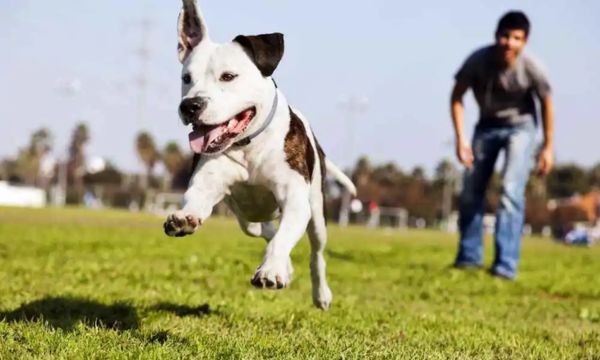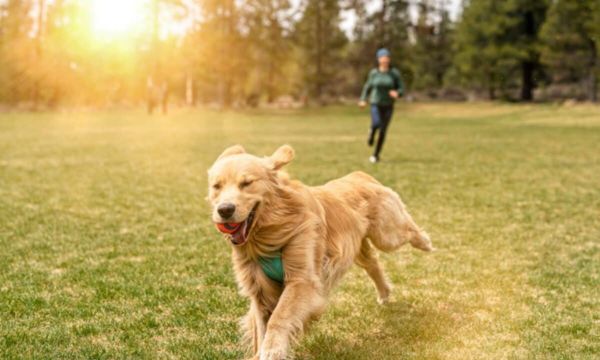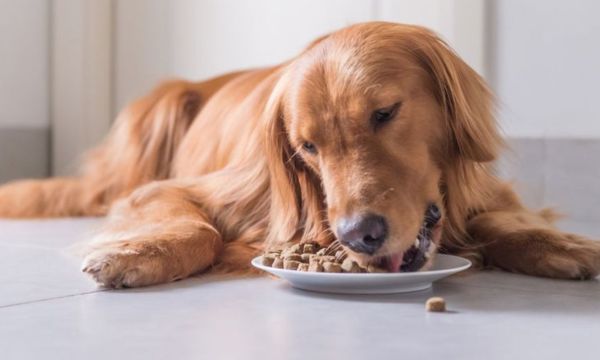Stop Destructive Chewing: Solutions
Chewing is a natural behavior for dogs. It keeps them aware of their surroundings, keeps their teeth clean and helps them deal with stress or boredom. But if this behavior gets out of hand, it can anger you and damage your assets. Dogs often have problems chewing things they shouldn’t, but the good news is that this can be controlled and stopped with proper training and strategies. In this complete guide, we’ll learn why destructive eating occurs and provide effective ways to help you and your furry friend find balance and make your home a better place to live.
Understanding Destructive Chewing:
1. Puppy Teething
Puppies use their lips to understand the world around them, and teething can be painful. During this period, the destructive chewing is often more severe than before.
2. Boredom And Excess Energy
Dogs that are left alone for long periods of time or have too much energy may chew to keep themselves entertained.
3. Stress And Worry
When a dog is worried or stressed, it may chew to calm itself down. The fear of separation in particular can lead dogs to chew on things that are harmful to them.
4. Not Enough Good Toys
If dogs don’t have suitable toys to chew on, they may turn to furniture, shoes, or other things around the house.
5. Medical Issues
When dogs chew too much, they may be trying to get rid of the pain caused by dental problems or stomach problems.
Effective Solutions to Stop Destructive Chewing:
1. Give Your Dog the Right Chew Toys
One of the best ways to keep your dog from chewing things he shouldn’t is to provide him with a range of safe chew toys. Chew toys can help them satisfy their urge to chew without damaging your stuff.
2. Exercise Your Body And Keep Your Mind Active
Making sure your dog gets plenty of exercise and mental activity can help prevent him from chewing out of boredom. Play with them, take them for a walk and play games every day to tire them out physically and mentally.
3. Training and Follow-Up of Assignments
Spend some time teaching your dog simple commands, such as “leave” and “put down.” This can help you control the way they behave and keep them away from things that aren’t good for them.
4. Use Bitter Apple Spray
Bitter apple spray is safe and will not harm your dog. You can place it on something your dog likes to chew on. They stopped chewing because the taste was too bitter.
5. Crate Training
It can be especially helpful for puppies to learn how to use a crate. It provides them with a safe place to perch when you can’t observe them so they are less likely to chew on things.
6. Supervise and Confine
While you’re at home, keep a close eye on your dog, especially if he likes to chew on things he shouldn’t. You can keep them out by putting up a baby gate or closing the door.
7. Address Potential Problems
If your dog is chewing because of anxiety or stress, find out why and address it. This can be done through professional training, changing the dog’s behavior or giving it medication recommended by your veterinarian.
8. Visit Your Dentist Regularly
Make sure your dog’s teeth are in good condition. Regular dental checkups and providing dental chews or toys can help prevent dental injuries that can cause dogs to chew too much.
Case Study: Curbing Destructive Chewing in Max
Max is a two-year-old labrador retriever who likes to chew things when he’s alone. Emily was angry about the damage he caused to furniture and other items she owned.
Emily’s Method
Emily started giving Max a variety of things to chew on, like sturdy rubber toys and tasty dental chews. She also taught Max to stay in his box when she needed to leave him alone.
Emily also started adding more exercise and reflection activities to Max’s daily schedule. Max is busy and exhausted from long walks, jigsaw puzzles and etiquette training.
Max’s devastating bite got better and better over time. Emily’s consistent training and providing the right resources to meet his chewing needs make the house a better place to live.
Conclusion:
It can be difficult to stop someone from chewing something they shouldn’t, but with patience and the right strategy, it’s doable. Remember, the key to finding the best answer for your dog is to figure out why he or she is chewing. You can help your dog find healthier ways to satisfy his chewing needs by providing appropriate toys, exercise and training, and addressing any fears.
FAQs:
1. Is destructive chewing a sign of a behavioral problem in dogs?
Destructive chewing can be a sign of boredom, anxiety, or a lack of proper training and supervision. The root causes must be addressed to effectively curb this behavior.
2. Are certain breeds more susceptible to destructive chewing behavior?
Some breeds may be more prone to chewing due to their natural instincts, but any dog can show destructive chewing if their needs are not met.
3. Can punishment be used to deter destructive chewing?
Punishment is generally not recommended as it can cause fear and anxiety in your dog. Positive reinforcement and switching to appropriate chew toys are more effective methods.
4. How long does it take to stop destructive chewing through training?
The time it takes to stop destructive chewing varies from dog to dog and depends on the underlying cause. Consistent training and the use of appropriate chew toys are critical to success.
5. When should I seek professional help for destructive chewing?
If your dog’s destructive chewing behavior persists despite your best efforts or causes severe pain, see a professional dog trainer or veterinary behaviorist.
Be sure to check out our article: DIY Dog Grooming Supplies. You’ll be surprised at how it will help you clarify doubts on the subject.
 Enrichment Activities for Behavior Improvement
Enrichment Activities for Behavior Improvement
Owning a pet is a rewarding experience, but it’s also your job to meet your furry friend’s […]
More The Role of Exercise in Dog Behavior
The Role of Exercise in Dog Behavior
Exercise is important not only for your dog’s physical health, but also for his or her behavior, […]
More Dog Behavior and Nutrition: Vital Connection
Dog Behavior and Nutrition: Vital Connection
The connection between a dog’s behavior and what he eats is an important part of canine health […]
More